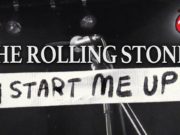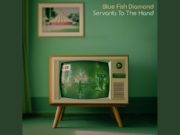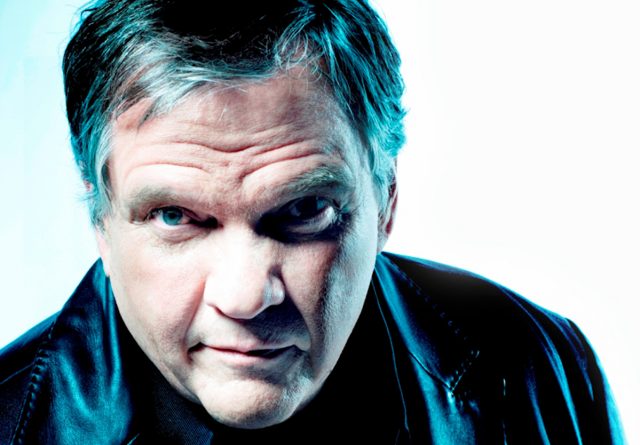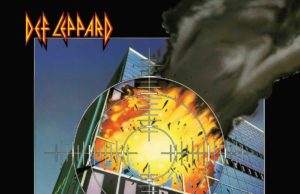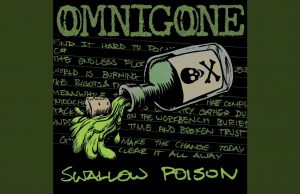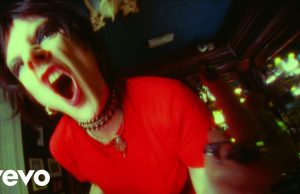B ack in 2012, I had the opportunity to talk to the one and only Meat Loaf. To be fair, I didn’t get to do much talking — Meat (which, yes, was his legal first name) basically said hello, ranted at me for 15 minutes while I tried to get a word in edgewise, and then abruptly hung up. (I’m apparently not alone; sometime later, I described my encounter to his son-in-law Scott Ian of Anthrax, who replied, “Yeah, that sounds about right.”) I initially pulled this article out of the archive when his longtime collaborator Jim Steinman died in April 2021, but now that Meat Loaf has also passed, it seemed like a good time to update it and put it back on the front page. As usual, I restored a bunch of quotes that got cut for space the first time around (but I still left out a lot; it’s the only way anyone could ever truly get the last word with Meat Loaf).
Meat Loaf has a bone to pick with me. “I gotta get you to pass a message to the guy who reviewed my show for the Sun in 2007,” the 64-year-old musical heavyweight born Marvin Lee Aday blurts out moments into our interview. “I think it was in Winnipeg. I was doing Paradise (by the Dashboard Light) with Aspen Miller and he called me a child molester. She was 33 years old. You tell that guy I’m gunning for him. Tell him if he sees me coming, walk across the street.”
Glad I’m not that guy. If he even exists. When I search the Sun database for the review, I can’t find those words anywhere, though the Winnipeg review is typical of many from that tour, saying: “Meat Loaf put a fresh — or should that be creepy? — spin on things by trading sexually charged lyrics with a cheerleader-type who looked young enough to be his granddaughter.” Sorry, dude. Thankfully, five-year-old critical barbs aren’t all that’s stuck in Meat’s craw right now. His 12th studio album Hell in a Handbasket — just released in North America — ranks as one of his most topical and personal works, updating his signature Wagnerian-rock bombast with topical lyrics. From his home in Los Angeles, the motormouthed Meat Loaf filled me in on his sucky melodies, what’s wrong with the Internet and how he wants to die. The highlights:
I wouldn’t call this a concept album, but there are themes and threads running through it.
Yeah, the thread is this: The world has gone to hell in a handbasket. That’s the thread. It’s about people losing the humanity, the compassion, the dignity, the truth. Everything has become about me, me, me. The world has gone completely insane.
How did we get to this point?
We got here because people stopped caring about other people and only care about their beliefs and what they want. The best example is in America: In this one high school, for 50 years a prayer was hung on a wall. And all of a sudden, a daughter and a woman who are atheists (complained). Being an atheist is fine; you don’t want to believe in God, I don’t care, you don’t have to. But something that’s hung on a wall for 50 years? People don’t even see it any more. If you’ve got that much time on your hands, go down and help at the children’s centre. Go help at the homeless centre. Go do something that helps other people. People need to stand up, be responsible for themselves and help other people. The Internet is to blame, the comment pages are to blame. There’s such hatred spewed out over the stupidest things. It makes me angry. For six years, I’ve been saying the world’s gone to hell in a handbasket. So I wanted to make this record. But I didn’t do it as a preacher. I did it by starting with my confessional. I didn’t do it by saying, ‘Oh look at you, you’re wrong.’ I started by saying, ‘Look, I’ve been wrong. But it’s time for me to take down my walls and my fortresses. I’m sorry.’ And I wish I could take back the times I’ve been wrong and done wrong to other people. Now my mantra is — and has been for years — I want to learn something today and I want to be a better person today than I was yesterday.
But as a guy who doesn’t write all his own material, you’re in a different position. Do you …
You don’t understand. See, that’s the problem. People don’t understand how I work, believe me.
Well, that’s why I’m asking. I want to know if you start with a concept …
I work with writers, I put ’em together, I go and I tell ’em what I want and where I’m going and what the direction of the album is. And they go, ‘OK, let’s get together.’ And I go, ‘You don’t want me in there the first two days because my melodies suck!’ So I get them in there, they get the melodies, then I go in. And I start changing lyrics, I start changing chords, I add bridges. It’s always been that way. There may be one song on Bat Out Of Hell that I didn’t have my hand in and that’s For Crying Out Loud, because Jim Steinman had that written. And that song, to me, is the best song ever written in history. There is not another song that can even come close to that song. And I wouldn’t touch that with a 10-foot pole. I put my interpretation on it, believe me. That’s the only time Jimmy and I ever had an argument. because Jimmy had somebody else sing it in something. And he mentioned this other guy doing it, a certain vocal, a certain way. And I said ‘Don’t you ever tell me how to sing a song.’ And then I dumped the piano and we started to laugh. I just picked up the piano and turned it sideways. And he goes, ‘OK, I’ll never mention his name again.’ But Jimmy did teach me a lot about different things and different styles.
If you have so much input, why don’t you take songwriting credit?
Because those other guys really wrote the songs. It doesn’t make any difference who gets the credit as long as the job gets done. And I do take publishing. But this is a very personal record, believe me. The only song I didn’t change was Our Love and Our Souls by Sean McConnell. Because I thought that was written perfectly.
What makes for a perfect song?
It has to have the truth, like any script. That’s the whole point of an actor. That’s the whole point of an artist. That’s the whole point of a stage performance, be it on Broadway, be it on a rock stage. Too many performers go on stage and it’s just bouncing around singing songs; there’s no truth in their performance. I don’t believe them. They’re just singing words. When I’m an actor, I need to find the truth. When I’m singing, I need to find the truth. It’s always about the truth.
You’re clearly a guy who doesn’t do anything by half-measures, and the physical show you do seems to take its toll. How are you dealing with that at your age?
I don’t deal with it. I just get out there and go for it. And some nights my voice is perfect and I can hit everything I want. And other nights … well, I’m 64. But believe me, there will not be a night I ever walk through a show. I’ll die for ya. I literally will die for an audience. The best thing that could ever happen to me is that I die onstage. Because then I’m dying doing what I love. I hate to cut us off but I gotta go.






